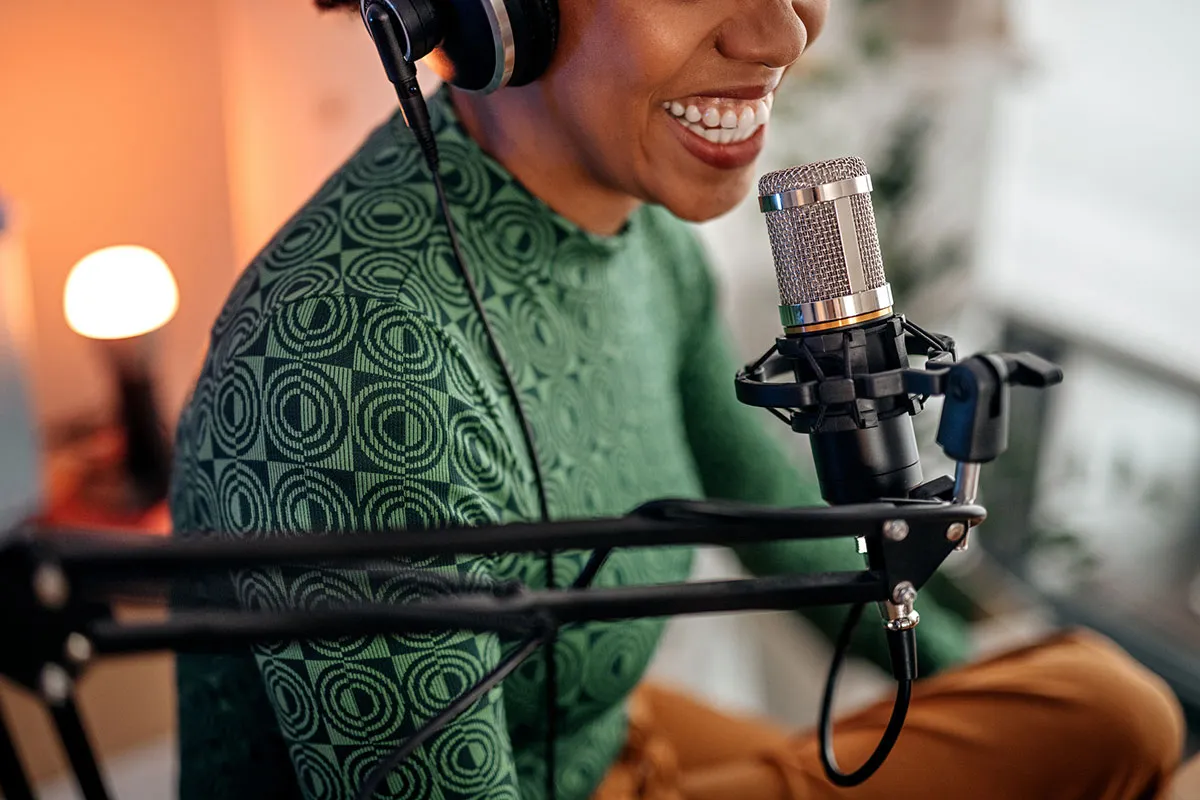Human beings are extremely social creatures. Our ability to form meaningful and lasting relationships with others was a key factor in the evolution of human intelligence. And our intensely social nature is, predictably, reflected in the workings of our brains.
Being praised by others triggers a pleasure response in our brains, while being criticised or rejected produces legitimate pain. We have complex neural mechanisms for detecting and sharing the emotional states of others. The people we relate to directly affect how we think and act, and so much more.
Basically, our brains are very good at forming relationships with others. Too good, if anything. Because we can even form relationships with individuals who don’t know we exist. Indeed, even if the particular individual doesn’t know we exist because they don’t exist!
Can it be called a ‘relationship’ when only one party is aware of it? Technically, no. But that hasn’t stopped anyone so far. And so, we get parasocial relationships.
What are parasocial relationships and why do they form?
When Princess Diana died in 1997, millions of people worldwide experienced genuine, powerful grief. But, with the exception of a select handful of people, those who mourned Princes Diana didn’t actually know her. They’d never even met her in person. Yet they mourned her, nonetheless. Because they were in a parasocial relationship with Princess Diana.
How can we end up feeling such a powerful, affecting connection to someone when we’ve never encountered them in person? It’s the result of our brain’s eagerness to form relationships with those we like, and its ability to be emotionally stimulated by imaginary constructs.
The human brain has impressive powers of simulation, i.e., imagination. But this isn’t just for idle fantasies and daydreams. It allows us to regularly simulate ‘What if…’ scenarios, a key aspect of how we navigate the world. It helps us to know how to behave in particular situations. We use it to anticipate threats and hazards. And so on.
However, these imaginary situations and constructs can trigger actual emotions, like the anxiety of imagining losing our job, or the happy yet giddy feelings we get when planning a proposal.
Real emotions from imagined stimuli are especially relevant when our brains simulate the thoughts and feelings of other people. Our brains are very good at this. What are shame and embarrassment, if not powerful emotional reactions to what we imagine other people are thinking about us? This requires considerable brain power; humans and their internal states are very complex, after all, so simulating them is a demanding process. This may explain why monogamy is linked to higher intelligence.
So, our brains are capable of simulating another human mind, and responding to it emotionally, based on the information we glean about them indirectly, from observations and interactions. Therefore, it’d be no great leap for our brains to create a simulation of someone we haven’t met, as long as we’ve retained sufficient information about them, and subsequently form emotional connections, parasocial relationships, to this hypothetical individual.

Are parasocial relationships becoming more common?
Parasocial relationships are nothing new. Humans are tribal, hierarchical creatures, and we’ve long been able to admire high-status individuals from afar, and imagine what it would be like to be with them, or to just be them.
But in recent decades, centuries even, they’ve become increasingly common, because human society has made it increasingly easy to acquire information about likeable individuals without ever encountering them in person.
In the case of Princess Diana, millions of people around the world didn’t wake up one day and spontaneously decide to become emotionally invested in a random British aristocrat. Rather, they learned all about Princess Diana because she was a constant presence in the media, to an ultimately dangerous (fatal?) extent. When a particular individual, and all their characteristics and actions, is being presented to you on a regular basis via newspapers and TV screens, it becomes increasingly hard not to have some form of emotional reaction to them, good or bad. It certainly allows your brain to create a stimulating simulation of them, in any case.
The modern world has taken this ball and run some considerable distance with it. We have the internet now, making it incredibly easy for our brains to acquire more than enough information about a (subjectively) desirable or admirable person to create an emotionally engaging simulation of them, allowing a parasocial relationship to form.
And no longer do we have to rely on the heavily managed, sanitised, and succinct insights about high-profile people that we could previously only get via TV, newspapers and magazines. Now we can ‘connect’ with prominent people directly, via their Twitter and Instagram accounts, their podcasts, and more. And if those we admire are communicating with us directly (albeit unknowingly), that can easily endorse, and thus reinforce, the emotional connection we’ve formed with them.
As well as this, the increasing availability, and technical detail, of books, movies, cartoons, video games, and any other fiction-supporting format means we can encounter ever more info about a likeable (albeit fictional) character. Our brains are very good at becoming immersed in a fantasy world at the expense of the real one. If we’ve not met the person we’ve formed a parasocial relationship with, and likely never will, whether they actually exist or not makes much less difference than you’d think. After all, it’s our own brain doing all the work in any case.
Are parasocial relationships healthy?
Real, tangible relationships are often very rewarding, and important for our sense of self-worth and wellbeing. But they can also be harmful, toxic, exploitative, or any number of other negative things. And the same applies to parasocial relationships.
Parasocial relationships are the basis of celebrity endorsements, and influencer culture. Those engaged in such things may be totally fine with it, but ultimately it’s still a means by which people’s emotional connections are exploited for someone else’s (typically financial) gain. There’s also the phenomenon of ‘sportswashing’, where the devotion of fans for a particular sports team is used to hide the ethical problems of rich and powerful owners.
Another sinister utilisation of parasocial relationships is the phenomenon of catfishing, the creation of a false identity so as to connect with people, even romantically, so as to solicit money and favours.
Also, those who enter into parasocial relationships aren’t only ever victims. They can often go too far. From the violent reaction of fandoms when beloved characters are changed in ways they disapprove of, to the development of unhealthy celebrity worship, to the development of stalking and other harmful behaviours, parasocial relationships can often go way beyond the point where they can be considered harmless. Particularly when there’s a romantic or sexual aspect; this often triggers emotions that interfere with rational thought and self-control.
After all, if you’re in a relationship that exists entirely within your own brain, rejection and subsequent boundaries are going to be far less common.

The positive side of parasocial relationships
Given all that’s been said, you’d be forgiven for wondering why our brains dedicate so much time and effort and precious resources to parasocial relationships, especially given all the harm they can do, and how vulnerable they leave us to manipulation and exploitation.
But our brains never do anything so complex without good reason, and that’s also the case here. Parasocial relationships provide motivation, inspiration, direction, a sense of belonging, and more.
More fundamentally, parasocial relationships allow us to become more adept with the real thing. Simulations are invariably created for practice and planning, and the simulated individuals our brains create are no exception.
This is particularly notable when we’re younger, and our brains are still figuring things out. Young children learn tricky concepts more effectively from characters they’ve formed a parasocial relationship with. And while they may seem bizarre, even worrying, from an adult perspective, children who create imaginary friends invariably experience a lot of benefits from doing so, like improved social skills, better learning, enhanced self-regulation and motivation, and more.
A similar process is at work when we experience teenage crushes. As disruptive and angsty as it may be when we become somewhat obsessed with an attractive peer or celebrity who is barely aware of us (if they even are), they’re an important process in the forming of suitable romantic schemas and understandings. Put simply, crushes are our brain’s way of, once again, practicing something important (romantic interactions) without having to engage with the risk and hazards of figuring it out via trial and error.
Ultimately, while they can, and regularly do, make us act in unrealistic, unreasonable, even harmful or unhealthy ways, parasocial relationships can also provide us with comfort, motivation, a sense of self-worth, and help us learn a great deal, about the world around us, and ourselves. They’re more like regular relationships than we think.
- Dean Burnett explores parasocial relationships in greater depth in his upcoming book Emotional Ignorance, published January 2023.
Read more about psychology:
